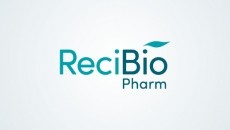New oral film takes the heat out of manufacturing
formulation and manufacturing process potentially giving the strip
a production advantage.
Paladin Labs and acquired company BioEnvelop have developed Thinsol, a water-based, enzymatically-digested carboxymethylcellulose oral dissolvable film. "Thinsol is fast dissolving, it leaves no residue in the mouth, being a water-based system, there is no need for the use of alcohol or other solvents during its production and it can be dried at low temperatures," BioEnvelop chief operating officer Etan Jagermann said. In a report last year by Technology Catalysts International, consultants to the pharmaceutical industry, there were more than 15 companies currently working on oral thin film as a drug delivery system. The report noted there was a trend of moving away from dissolvable tablets to fast-dissolving and water-soluble films. The oral film market is currently worth $500m but the report estimated the market could be worth $2bn by 2010. Unlike other oral films, Thinsol has no requirement for heat during the manufacturing process because of the high amount of cellulose-based solids and little water to evaporate. The films can be dried at low temperatures from sources such as hot air or infrared technology, which allows for heat-sensitive drugs to be incorporated into the strip. Thinsol can also be manufactured to be four times as thick as regular films, thereby increasing the drug load per strip. According to Paladin and BioEnvelop, the strips can accommodate active pharmaceutical ingredients (APIs) in the quantity of up to 60 per cent of the overall weight of the film. A strip can be formulated to contain more than 100mg of active ingredients, while the amount in currently available strips can only contain 60mg of APIs. The film can dissolve in five to 30 seconds, but BioEnvelop R&D director Eve Belanger told in-PharmaTechnologist.com the strip could be formulated to take longer to dissolve. "If we needed, we can increase [dissolution] to one minute. Some drugs are better absorbed when they take longer to dissolve in the mouth," she said. The drugs used could be either soluble or insoluble, Belanger said. So far the companies have done trials with proteins, herbal extract, oils, and caffeine. Belanger said the strips could be formulated to taste like peppermint or chocolate and could even use an encapsulation technology to hide the bad taste of drugs. The companies have submitted a patent application for the oral film drug delivery system. Paladin acquired BioEnvelop in May.












